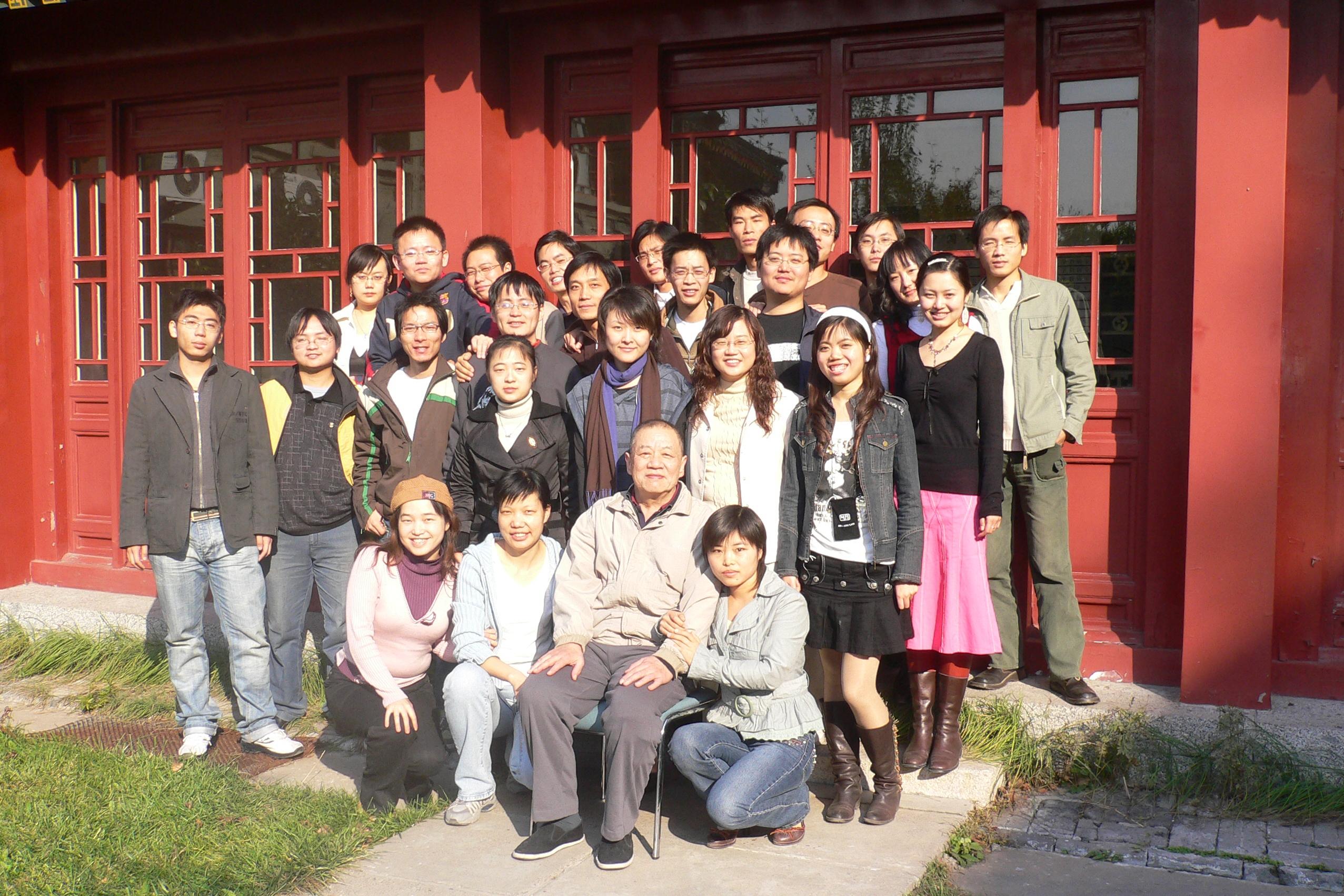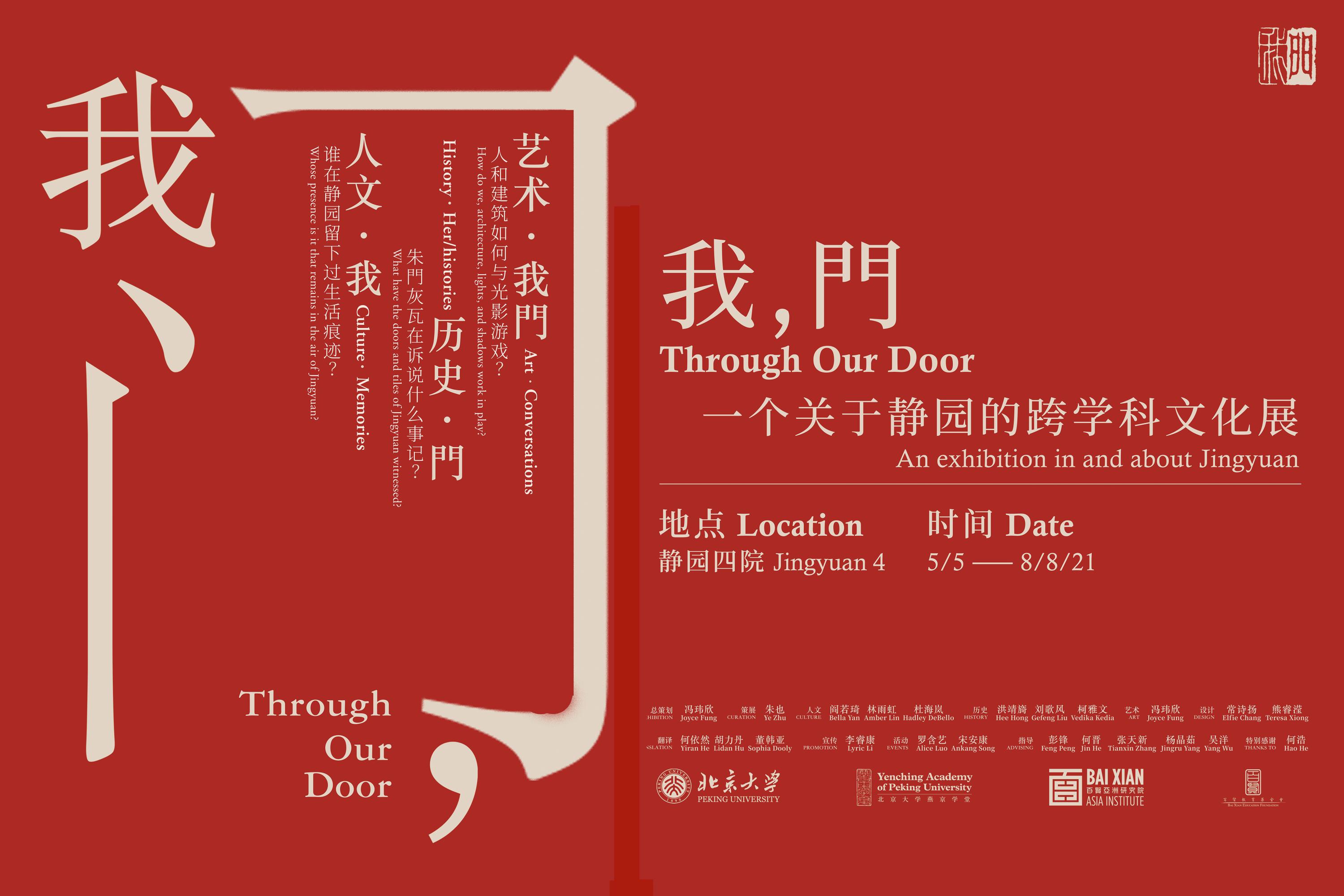After being admitted to Peking University in 1986, Professor Yanjun Shao obtained her bachelor’s, master’s, and doctor’s degree in the Department of Chinese Language and Literature. After graduation, she stayed on to teach at the department and has been working here for 35 years. As the host of the “Peking University Review Forum,” Professor Shao once worked with like-minded literature lovers in Jingyuan courtyard 5. In a small conference room of the courtyard, with their passion for literature, they tracked and reviewed more than ten mainstream literary journals in China for six years. Batches of solid historical materials contributing to the future history of literature were written during the intense discussions in Jingyuan courtyard 5, which could be characterized by Yuxi Liu’s famous line: “The table-talk and laughter of renowned scholars could be heard here, but the rough and vulgar dare not come to sell their wares.”

Professor Zumo Zhao came to a forum on September 16, 2007
Q: When was the first time you came to Jingyuan? What was your first impression of Jingyuan?
A: I was enrolled in Peking University in 1986. At that time, Jingyuan was a dense orchard, about waist high. The interior of the orchard was relatively enclosed, and it was a place for Peking University students to walk and date. Later, Jingyuan became a lawn because the Peking University Library was going to expand and would occupy the lawn full of youthfulness in front of the library. People were very unwilling to give up. In addition, there were students who majored in urban planning insisting on maintaining a “hollow” layout in the design of universities. Therefore, a public space for activities must exist. As a result, the fruit trees in Jingyuan were cut down, and later became the lawn that everyone can see now. Interestingly, if the lawn in front of the Peking University Library was said to always be full of a particularly restless, youthful vibe, then the Jingyuan lawn has a calm and stable middle-aged atmosphere. The lawn singers who sang in the summer nights have all disappeared, replaced by many baby walkers, and the plants on the lawn in Jingyuan are messier than before.
Q: Do you have any deep impressions of Jingyuan courtyard 5?
A: Speaking of Jingyuan courtyard 5, Mr. Feng, the then educational administrator at the time, impressed me deeply. There were no computers back then, so his work records were handwritten. Mr. Feng was extremely capable—he knew almost every student in our Department of Chinese Language and Literature, and his memory was so good that he could remember things about students quite clearly. When you went to ask him something about credits, he would call out your name and say, “yes, I remember the credits you took...”
I have been teaching students in Jingyuan for about six years. At that time, I was doing some work related to the “Review Forum.” That course was a pure discussion course, so I would teach less and mainly ask students to comment on literary publications as well as literature works and manuscripts. It was in the conference room of Jingyuan 5. At that time, the conditions were not that good—the conference room was a bit simple and crude. Our students would bring refreshments from their hometowns and would discuss and chat with each other. It’s a three-hour class and we often discussed for an entire afternoon and came back after dinner to continue the discussion. Although the conference room of Jingyuan 5 at that time was shabby and messy, it was very useful. I even wrote an article titled “Our Forum” at the end of it to share my memories of Jingyuan.
Several leading scholars of our field had come to this forum, including Professor Mian Xie, Professor Zicheng Hong, and Professor Wenxuan Cao. The most memorable visitor was Professor Zumo Zhao, who was paralyzed in a medical accident in the mid-1980s. He had endured the pain for many years, and a lot of students of our department did not know him. I asked him to teach our students how to write novel reviews. Professor Zhao came to our class with crutches, holding a thick stack of lecture notes, and commented on the students’ reviews one by one and got right to the point, which greatly benefited and moved the students. The legacy of teacher’s ethics and teacher-student relationships are more important than knowledge.
We also invited a lot of other renowned professors at the time, and this event would attract many writers and editors, because many literary seminars outside of campus actually had nothing to do with literature itself. Our activities, however, would still focus on discussing works and literature. We would be arguing every day over which works should be recommended or not that year. This is actually an activity that was maintained by everyone’s interest, passion, affection and love.
Q: You have experienced the change of identity from a student to a professor. Has Jingyuan 5 also changed in this process? Whether physically or mentally?
A: It’s actually a symbol of home—I don’t think it is just a department office. For me, because of the “Review Forum,” I spent at least one afternoon of heated discussion in Jingyuan courtyard 5 every week. Year in and year out, it gradually became my home.
Q: After moving to the Lee Shau Kee Humanities Hall, how do you think it is different from Jingyuan, and how do you feel about the differences?
A: I find that life is cruel—you think you will miss Jingyuan a lot? Not really, as long as the conditions are better, people won’t think of the past. At that time, everyone was telling us that we lost Jingyuan courtyard 5 when they met people from our department, and indeed it was gone. Actually, I am not really sad, because we moved to a place that was still so quaint, and more importantly, we all had our own independent offices now. As the Humanities Hall is also beginning to be renovated, we specially applied for the planting of wisteria, crabapple, and hawthorn. We meant to replant the most important and representative flowers and trees of Jingyuan, which can be regarded as a form of continuation and inheritance in some way.
